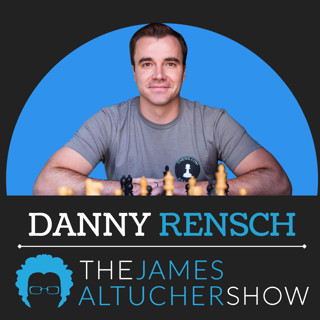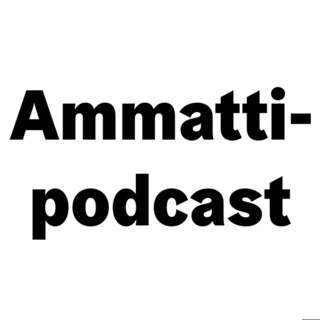
Morgan Housel on The Art of Spending Money and Why Independence Is the Real Luxury
A Note from JamesI’m such a fan of this guy. I loved The Psychology of Money — it felt like he was writing directly about me. I’ve made a lot of money, lost it all, made it again, lost it again. Over and over. And Morgan gets it.His new book, The Art of Spending Money, hits even deeper. It’s not just about being rich; it’s about freedom, simplicity, and contentment — the real returns of life. Every word of this conversation is a reminder that money is never about money. It’s about independence.Episode DescriptionIn this episode, James sits down with bestselling author Morgan Housel (The Psychology of Money, Same as Ever, The Art of Spending Money) to explore how wealth, happiness, and identity intersect.They talk about why most people spend money to impress strangers who aren’t even paying attention, why saving isn’t “delayed gratification,” and why independence is the ultimate luxury.Housel and Altucher go beyond finance — into psychology, meaning, and what happens when your identity gets tied up in your success. This is one of the most personal and useful conversations you’ll hear about money this year.What You’ll LearnWhy the goal of money isn’t happiness — it’s contentment.How to “purchase independence” instead of possessions.The hidden trap of social signaling and lifestyle inflation.How to build a healthy “psychology of money” that lasts through boom and bust.Why compounding memories might be more valuable than compounding interest.Timestamped Chapters[02:00] “Saving is purchasing independence.”[02:29] Happiness vs. contentment — why wealth brings fewer bad days, not more good ones.[03:00] A Note from James: how Morgan’s books mirror his own financial rollercoaster.[04:01] The social trap of spending for admiration.[05:19] Why signaling is universal — and why we overestimate who’s watching.[06:29] The three skills of money: making, keeping, and growing it.[07:02] Saving as joy, not sacrifice: how independence is pleasure in the present.[09:08] Why wealth means fewer bad days, not more good ones.[10:00] The quest for the simple life — why simplicity equals freedom.[11:04] James’s minimalist experiment: life with one backpack.[12:00] The billionaire’s regret — Harvey Firestone and the mansion paradox.[14:15] The psychology of downgrades and why people can’t go back.[15:40] Who are you trying to impress? The six people who actually matter.[17:21] Money as a tool vs. money as a scoreboard.[18:35] Why the desire for status falls when you find meaning elsewhere.[21:30] The fear of losing freedom — and how it drives bad decisions.[23:00] Even billionaires worry about losing it all — why fear never goes away.[25:11] Are we wired to worry about money? Nature vs. nurture in financial behavior.[27:39] Envy as outsourced thinking — how jealousy hijacks your decisions.[30:00] The five-minute rule: happiness never lasts, contentment does.[32:00] Saving in your 20s — when it matters and when it doesn’t.[33:51] The habits that stick: why early saving teaches independence.[35:29] Why the best memories come when you have the least money.[37:07] Scarcity, gratitude, and why effort creates value.[38:35] Wiping the slate clean: how to escape identity traps.[40:00] Retirement, identity loss, and why former athletes struggle.[42:25] “Keep your identity small.” — lessons from Paul Graham and Tim Ferriss.[45:00] When obsession fuels creation — how James moves between identities.[49:22] Sticking with one thing vs. exploring many — the range paradox.[51:25] The barbell of wisdom: compounding stability vs. compounding experiences.[53:27] The compounding of memories — why they may outlast wealth.[55:15] Simplicity, location, and the emotional geography of memory.Additional Resources📖 The Art of Spending Money by Morgan Housel📖 The Psychology of Money by Morgan Housel📖 Same as Ever by Morgan Housel📰 MorganHousel.comSee Privacy Policy at https://art19.com/privacy and California Privacy Notice at https://art19.com/privacy#do-not-sell-my-info.
9 Loka 1h 6min

Confronting Evil with Bill O’Reilly
A Note from James: Bill O’Reilly’s new book, Confronting Evil, is both a history lesson and a warning. It’s a study of the most destructive figures in human history—from Hitler, Stalin, and Mao to Genghis Khan, Caligula, and even modern evildoers like Putin and the cartels.When I first picked it up, I thought it would be about the past. But after reading it, I realized it’s really about right now—about how evil mutates, reappears, and spreads when we stop paying attention.We talked about the psychology of evil, how it manifests differently in modern life, and why we all need to look inward at how we process fear and anger. The episode ends on a note of hope—but only if we’re willing to face what’s real.Episode Description:In this episode, James sits down with legendary journalist and author Bill O’Reilly to discuss his new book, Confronting Evil: Assessing the Worst of the Worst. Together, they explore how history’s darkest figures—Hitler, Mao, Stalin, Putin, and others—reflect modern patterns of violence, polarization, and moral decay.O’Reilly draws from decades of reporting and war correspondence to explain the difference between “personal evil” and “collective evil,” and why societies collapse when good people stop paying attention.The conversation also looks at free speech, mental illness, the internet’s role in radicalization, and why mercy for the guilty so often becomes cruelty to the innocent.What You’ll Learn:The 15 most destructive figures in world history—and why their patterns are repeating today.The two types of evil: personal vs. collective.How technology and echo chambers amplify hatred.Why ignoring small evils allows larger ones to grow.How to recognize and contain evil in a free society.Timestamped Chapters:[02:00] A Note from James: Introducing Confronting Evil[02:39] Are we living in a new age of violence or just a repeating cycle?[03:39] On partisanship, anger, and how fear disguises itself[04:57] Bill joins: marketing a book in the age of distraction[05:51] Why O’Reilly wrote Confronting Evil and how it differs from his “Killing” series[07:16] Putin, October 7th, and the eerie timing of the book’s release[08:20] Why today’s evil feels more personal than historic evil[09:39] Personal encounters with evil: chasing Ted Bundy[11:01] Witnessing atrocities: from El Salvador to Belfast[12:24] Could Hitler have been reasoned with? The psychology of the irredeemable[14:27] “Mercy to the guilty is cruelty to the innocent” — justice and accountability[15:36] The internet’s role in radicalization and digital “clubs for evil”[17:00] Echo chambers, hate speech, and how the free world handles extremism[19:02] Why confronting evil matters in a “free” but apathetic society[20:00] The October 7th attacks and why O’Reilly opens his book there[21:22] “Queers for Palestine” and the IQ of modern activism[22:00] How ignorance and apathy breed delusion[23:00] When does “necessary evil” cross the line into tyranny? Augustus and strongmen[25:10] The psychology of dictators: no remorse, no redemption[26:11] The Constitution as an anti-authoritarian framework[27:50] Polarization, Portland, and the fight over federal authority[29:00] How democracies correct themselves—eventually[31:31] Data over ideology: why extremists are still a minority[32:04] Can AI detect future Hitlers?[33:28] Why people cheer for evil—and how to walk away[34:46] The 15 who made the cut: why some evildoers were left out[35:36] The drug cartels as modern-day mass murderers[36:29] O’Reilly’s warning: mobilize the 85% before it’s too late[36:54] Ending on hope—why good still outnumbers evilAdditional Resources📖 Confronting Evil: Assessing the Worst of the Worst by Bill O’Reilly & Josh Hammer📚 BillOReilly.com – Official Site🎧 Related: The James Altucher Show – Charles Duhigg on Super CommunicatorsSee Privacy Policy at https://art19.com/privacy and California Privacy Notice at https://art19.com/privacy#do-not-sell-my-info.
7 Loka 40min

Built for Growth with Miesha Tate: James Altucher on Ideas, Obsession, and Fulfillment
A Note from JamesMiesha Tate is one of my favorite people in the world. She’s an incredible athlete—the ultimate fighting champion of the planet at one point—but more than that, she’s someone who’s turned struggle, discipline, and excellence into wisdom.I was honored when she asked me to be on her podcast, Built for Growth. We talked about surviving turbulence in life, doing hard things, and why obsession can be both a gift and a curse. What I loved most was how different our paths have been, yet how much we connected.Episode DescriptionIn this crossover episode, James joins former UFC champion Miesha Tate on her podcast Built for Growth. They talk about the “idea muscle,” the myth of the 10,000-hour rule, how to teach kids outside traditional schooling, and why fulfillment—not money or titles—should be the ultimate goal.James opens up about losing everything, rebuilding from scratch with nothing more than a waiter’s pad, and why experimenting is often the shortcut to mastery. Miesha shares her journey through fighting, parenting, and building a new kind of education for her kids.This episode is about creativity, resilience, and the courage to experiment with life.What You’ll LearnHow to strengthen your “idea muscle” with the 10 ideas a day practice.Why obsession can be the deciding factor in becoming great at something.How experiments can shortcut the 10,000-hour rule.Why traditional schooling fails kids—and how learner-driven models work.The difference between happiness and fulfillment, and why fulfillment matters more.Timestamped Chapters[02:00] A Note from James: honored to be Miesha’s guest[03:10] Hair, insecurity, and how childhood shapes identity[05:00] Role reversal: Miesha puts James in the hot seat[07:00] Doing hard things: lessons from wrestling and life[08:17] The 10 ideas a day practice—why the brain “sweats” after idea #7[10:19] Goals vs. ideas: learning through lists[11:20] The struggle of doing less and finding presence[13:00] Why obsession fuels mastery and resilience[17:20] Building and losing a company, then starting over[19:22] How the idea muscle pulled James out of depression[22:00] Miesha on homeschooling, creativity, and unschooling[25:00] Why school fails—and what kids really need to learn[27:00] The college debt scam and alternative paths[33:00] Risk-taking, love vs. logic, and experimenting with ideas[35:00] Standup comedy: a bad idea that changed James’s life[38:20] Money, family, and creating financial stability while experimenting[41:25] Miesha’s dream: starting a homeschool business in Boise[44:33] Why you don’t need 10,000 hours—just experiments[49:22] From Star Wars to the Fosbury Flop: innovation through combination[51:00] School, grades, and why James only did what he loved[52:46] Happiness vs. fulfillment: the real goal of successAdditional Resources📖 Choose Yourself by James Altucher🎧 Built for Growth with Miesha Tate📖 Reinvent Yourself by James AltucherSee Privacy Policy at https://art19.com/privacy and California Privacy Notice at https://art19.com/privacy#do-not-sell-my-info.
2 Loka 1h 40min

Dark Squares: Danny Rensch on Chess, Cults, and Finding Purpose
A Note from JamesThis might be the most insane chess story I’ve ever heard—not even really a chess story, but a cult story. It’s wild, intense, and ultimately inspiring. Danny Rensch grew up in a cult in Arizona. At just 10 years old, the cult leader noticed his chess ability, took him away from his parents, and he wouldn’t see his mother again for a decade.I first heard Danny’s story when we met at Norway Chess a year and a half ago. Over dinner, he told me pieces of what would become his book Dark Squares: How Chess Saved My Life. I worried later that I’d pushed him into podcast mode before he was ready, but Danny said he was actually grateful for the chance to practice sharing his story out loud. Now, with his book out, he’s ready to open up fully.Episode DescriptionDanny Rensch, Chief Chess Officer at Chess.com and author of Dark Squares: How Chess Saved My Life, shares the extraordinary story of how growing up in a cult shaped his childhood, his chess career, and his path to resilience.From being separated from his mother at age 10, to navigating indoctrination, hierarchy, and trauma, Danny explains how chess became both his prison and his salvation. This conversation is about more than chess—it’s about control, identity, purpose, and how to reclaim your life from the stories others force on you.What You’ll LearnHow a cult leader used chess as propaganda—and how Danny reclaimed the game as his own.The three pillars of cult life Danny experienced: like vibration, the process, and purpose.Why vulnerability and storytelling can be healing—but also how they can be weaponized.The psychological toll of being told your “purpose” at age 12—and how to build a new one.What Danny learned about resilience, family, and community after leaving the cult.Timestamped Chapters[02:05] A Note from James: introducing Dark Squares[02:34] Danny’s childhood in a cult and separation from his mother[03:40] How Danny first shared his story with James in Norway[05:09] Learning to talk about trauma without fear of judgment[07:00] The challenge of context—why cult stories get misunderstood[08:20] Headline version: growing up in the Church of Immortal Consciousness[10:18] Cult hierarchy, trance teachings, and the Shelby School chess team[12:12] Was it spiritual belief—or a scam?[14:15] The role of Trina and Steven Camp, cult leaders and channelers[17:00] How hierarchy and “like vibration” destroyed marriages and families[23:00] The three pillars: like vibration, the process, and purpose[32:28] “The process”: group confession, alcohol, and weaponized vulnerability[41:54] “Purpose”: how chess became Danny’s imposed destiny[46:41] What it meant to be told at 12 that chess was his life’s purpose[50:18] Family secrets, hidden paternity, and the dangers of indoctrination[55:20] Processing trauma as an adult and writing Dark Squares[02:05] A Note from James: introducing Dark Squares[02:34] Danny’s childhood in a cult and separation from his mother[03:40] How Danny first shared his story with James in Norway[05:09] Learning to talk about trauma without fear of judgment[07:00] The challenge of context—why cult stories get misunderstood[08:20] Headline version: growing up in the Church of Immortal Consciousness[10:18] Cult hierarchy, trance teachings, and the Shelby School chess team[12:12] Was it spiritual belief—or a scam?[14:15] The role of Trina and Steven Camp, cult leaders and channelers[17:00] How hierarchy and “like vibration” destroyed marriages and families[23:00] The three pillars: like vibration, the process, and purpose[32:28] “The process”: group confession, alcohol, and weaponized vulnerability[41:54] “Purpose”: how chess became Danny’s imposed destiny[46:41] What it meant to be told at 12 that chess was his life’s purpose[50:18] Family secrets, hidden paternity, and the dangers of indoctrination[55:20] Processing trauma as an adult and writing Dark Squares[63:28] Early aptitude signs: multiplication tables and ADHD focus[65:22] Childhood acting dreams and practicing “the eyebrow lift”[72:24] The most painful mother–son conversation: loyalty to the cult vs. family[73:39] Giving away belongings before leaving home—grieving his mother alive[87:31] Medical breakdown, ears exploding, and a failed chess career[88:16] Bedridden but discovering the internet: early lessons in tech and online chess[89:16] Buying domains, teaching online, and meeting Eric and Jay[114:25] On Magnus Carlsen: confidence, health, and the “Great White Shark” mindset[116:20] Chess.com and the post-COVID boom: making a living beyond world championshipAdditional Resources📖 Dark Squares: How Chess Saved My Life by Danny Rensch🌐 Danny Rensch on Chess.com🎥 Searching for Bobby Fischer (1993 film)See Privacy Policy at https://art19.com/privacy and California Privacy Notice at https://art19.com/privacy#do-not-sell-my-info.
24 Syys 2h 1min

Finding Connection in a Divided World with 'Super Communicator' Charles Duhigg
A Note from JamesI’m really concerned about the level of discourse in this country. It’s almost a cliché to say that now, but especially after the Charlie Kirk assassination, the division feels overwhelming. I even got invited to speak at the Oxford Union—the most prestigious debate society in the world—but ultimately declined because I didn’t like how the whole situation was being handled.I can’t stand when anyone celebrates a death. Regardless of politics, it disturbs me. And every day, my social media feed is filled with more division and hatred. So I wanted to talk with Charles Duhigg. He wrote Super Communicators (now out in paperback) about how to actually connect with people in a world that seems torn apart. Even in a short conversation, I learned so much from him—things that made me think in new ways.Episode DescriptionPulitzer Prize-winning journalist and bestselling author Charles Duhigg (Super Communicators, The Power of Habit) joins James to explore how we can talk to each other in an age of polarization. From tragic political violence to everyday disagreements with family and friends, Charles explains why humans are wired for connection, how to ask better questions, and what it takes to turn conflict into understanding.This episode is a practical guide to becoming a better communicator—especially when the stakes are high.What You’ll LearnThe three types of conversations—emotional, practical, and social—and why mismatched conversations cause breakdowns.How to ask “deep questions” that uncover values and experiences, not just surface facts.Why mirroring, looping, and listening carefully make people feel truly heard.How to handle anger and cliches with curiosity instead of combat.Why disagreements don’t destroy democracy—bad communication does.Timestamped Chapters[03:08] James on division, Oxford Union, and why he turned down an invitation[06:06] Why James brought Charles Duhigg on the podcast[07:00] Political violence, polarization, and clashing conversations[10:42] What made Charlie Kirk an effective communicator[12:21] Communication as connection, not just information[13:21] Do both sides have to want connection?[15:20] Congress, partisanship, and performative politics[19:36] How “deep questions” build trust and reveal values[21:10] James on why he podcasts—and Charles’s analysis[23:39] Social reciprocity and feeling closer through vulnerability[24:23] History shows the value of disagreement done right[26:00] Why we reward bad behavior—and how to stop[27:09] James on gun control neutrality and frustration[29:00] Parenting lessons applied to political disagreements[30:00] “When you’re furious, get curious”[31:53] Moving past cliches by asking about personal experiences[33:08] Admitting confidence levels in arguments[34:19] Is Charles optimistic about America’s communication future?[34:50] A challenge for listeners: ask someone you disagree with “why does this matter to you?”[36:09] Closing thoughts: Super Communicators now in paperbackAdditional Resources📖 Super Communicators by Charles Duhigg📖 The Power of Habit by Charles Duhigg🌐 Charles Duhigg’s websiteSee Privacy Policy at https://art19.com/privacy and California Privacy Notice at https://art19.com/privacy#do-not-sell-my-info.
20 Syys 41min

Inside the Cartel: The Longest Undercover FBI Operation with Martin Suarez and Ian Frisch
A Note from JamesThis is a crazy story. Martin Suarez holds the record for the longest continuous undercover assignment in FBI history. He went undercover as a cartel drug lord—smuggling billions of dollars’ worth of cocaine while posing as “Manny.” At one point, the story even starts with a gun to his head, convinced his cover was blown.The book Inside the Cartel: A True Crime Tale of Espionage, Undercover Operations, and a War Against Billionaire Drug Lords—co-authored with journalist Ian Frisch—captures it all. Martin’s voice may be difficult to catch at times because he’s been battling ALS, but every word is worth hearing. Ian also joins to help tell the story. This conversation had me on the edge of my seat.Episode DescriptionFormer FBI agent Martin Suarez spent more than a decade living undercover inside Colombian cartels. Known to the underworld as “Manny,” he laundered money, smuggled cocaine, and survived assassination attempts—all while secretly working for the U.S. government.In this episode, James sits down with Suarez and his co-author Ian Frisch to explore how an ordinary Navy veteran became the FBI’s ultimate undercover agent, why deception works in high-stakes negotiations, and what lessons from cartel infiltration apply to everyday life.What You’ll LearnThe psychological techniques Martin used to maintain his cover for years inside violent cartels.How undercover work creates “alternate realities” to control narratives and shift blame.Why confidence and self-belief are critical in negotiation, business, and personal life.The role of deception and patience in both undercover work and real-world persuasion.How Martin and his family managed the risks and sacrifices of a life lived undercover.Timestamped Chapters[03:00] A gun to the head: the moment Martin thought his cover was blown[07:00] Surviving a cartel hitman[10:00] From Navy to FBI: the start of an undercover career[12:00] Why Martin was the “perfect” undercover agent[14:00] Smuggling versus intelligence gathering: the FBI’s strategy[16:00] How to move cartel shipments without breaking cover[18:00] The art of deflecting blame and creating alternate realities[22:00] Cartel power and control in Colombia[23:00] U.S. government ties and the Iran-Contra era[25:00] Using FBI agents as “girlfriends” to gather intelligence[27:00] Facing long-term risks—and the bigger battle with ALS[30:00] Marriage, trust, and sacrifice during undercover life[32:00] Art theft undercover operation in Europe[36:00] Fooling even the CIA with a perfect legend[41:00] How legends are built in the digital age[44:00] Negotiation, seduction, and cartel psychology[45:00] Ian’s lessons on confidence and self-convincing[47:00] Applying undercover strategies to everyday life[49:00] The role of greed in cartel decision-making[50:00] Marriage, grounding, and long-term support[51:00] Are cartel leaders truly evil—or just highly educated?Additional Resources📖 Inside the Cartel by Martin Suarez and Ian Frisch✍️ Ian Frisch’s journalism and other workSee Privacy Policy at https://art19.com/privacy and California Privacy Notice at https://art19.com/privacy#do-not-sell-my-info.
17 Syys 59min
![[Bonus] Brian Keating on Humility, Chutzpah, and the Arrow of Time](https://cdn.podme.com/podcast-images/25632EB26B69D94AE450BF7274339C9B_small.jpg)
[Bonus] Brian Keating on Humility, Chutzpah, and the Arrow of Time
Episode DescriptionRight after wrapping up their main conversation, James and Brian hit record again for a bonus session. What came out is an unfiltered talk on humility, arrogance, and the strange mix of traits needed to achieve great things. From the wisdom of the Talmud to the Dunning–Kruger effect, they explore why even Nobel Prize winners wrestle with imposter syndrome.James shares how writing books requires a mix of blind confidence and humility, while Brian connects scientific resilience to obsession, quests, and flow states. The two also talk candidly about the challenges of writing and publishing science books in today’s world—and Brian previews his bold new project exploring Jim Simons, “Chern–Simons Theory,” and the very arrow of time itself.What You’ll LearnWhy success requires balancing humility with courage—and sometimes arrogance with ignoranceHow Nobel Prize winners secretly struggle with imposter syndromeWhy writing books demands both blind confidence and ruthless editingThe difference between obsession and quest when pursuing successWhat “Chern–Simons Theory” reveals about time, space, and the structure of the universeTimestamped Chapters[02:00] Humility, chutzpah, and the Talmud’s two pockets[03:00] Writing, Dunning–Kruger, and the blindness needed for progress[05:00] Imposter syndrome—even after winning the Nobel Prize[06:00] Resilience, grad school, and the limits of Goggins-style toughness[07:00] Obsession vs. quest: two paths to achievement[08:00] Flow states, joy, and Nobel Prize winners at play[09:00] The cost of careers that don’t allow flow[10:00] The challenges of science publishing in the age of AI[11:00] James on downloads, inspiration, and writing talks in his sleep[12:00] The genius spirit, loneliness, and Hemingway’s advice[13:00] Why science books lean on unprovable ideas[14:00] String theory, quantum entanglement, and perennial sellers[15:00] Jim Simons, Chern–Simons Theory, and the arrow of timeAdditional ResourcesBrian Keating – Official WebsiteInto the Impossible: Focus Like a Nobel Prize Winner (Volume 2) – AmazonDonna Strickland – Nobel Prize in Physics 2018 – Nobel Prize BiographyCal Newport – Deep Work – AmazonAli Abdaal – Feel Good Productivity – AmazonRyan Holiday – Perennial Seller – AmazonChern–Simons Theory (Mathematical Physics Overview) – WikipediaJim Simons Biography (The Man Who Solved the Market) – AmazonSee Privacy Policy at https://art19.com/privacy and California Privacy Notice at https://art19.com/privacy#do-not-sell-my-info.
12 Syys 18min

How to Focus Like a Nobel Prize Winner with Prof. Brian Keating
Episode DescriptionJames sits down once again with cosmologist Brian Keating—longtime friend of the show and author of Into the Impossible: Focus Like a Nobel Prize Winner. In this candid conversation, they challenge each other’s views on focus, curiosity, and the trade-offs of staying in your lane. Brian shares behind-the-scenes lessons from interviewing Nobel Prize winners, the thinking behind his new “Keating Test” for AI, and why communication matters as much as discovery in science.This episode isn’t about self-help clichés. It’s about real-world insights you won’t hear anywhere else—whether it’s why guarding your time is the most important skill, how to use flow states to sharpen your career, or why great breakthroughs depend on questioning the work of those who came before.What You’ll LearnWhy Brian created the “Keating Test” as a new measure for true artificial intelligenceHow Nobel Prize winners balance intense focus with curiosity across disciplinesWhy communication skills matter as much as scientific discovery for lasting impactHow to guard your time from “time bandits” and apply the power of saying “no”Practical ways to find your lane—or combine lanes—while still pursuing flow and masteryTimestamped Chapters[02:00] The Keating Test: AI, free will, and the act of survival[06:00] Humor, history, and reclaiming the “worst joke ever told”[08:00] Friendship, TEDx, and 11 years of conversations[09:00] Lessons from Nobel Prize winners: beyond self-help habits[10:00] Publishing with Scribe/Lioncrest and connections to James and David Goggins[12:00] Into the Impossible, Volume One: why distilling Nobel wisdom matters[13:00] Imposter syndrome, Alfred Nobel, and Volume Two’s focus[15:00] Donna Strickland, LASIK, and the power of saying no[18:00] Stay in your lane—or widen it? A debate on mastery and curiosity[23:00] Newton, Pascal, and the discipline of sitting in a room[26:00] Regrets, diversification, and finding flow[28:00] Crystallized vs. fluid intelligence in the age of AI[31:00] The importance of novelty—and the Lindy test[35:00] Math, reality, and the unreasonable effectiveness of ideas[38:00] Teaching quantum computing: bridging theory and life skills[43:00] From cryogenics to code: skills that outlast AI[47:00] Why communication defines success in science[50:00] Doing things that don’t scale: relationships, meteorites, and networks[52:00] The missed opportunities of office hours—and how to build relationships[54:00] Reading theses, genuine curiosity, and non-scalable networking[55:00] Into the Impossible, Volume Two: life lessons and scientific breakthroughs[57:00] How old is the universe? The cosmic controversy[59:00] Gravitational waves, BICEP2, and losing the Nobel Prize[61:00] Dust, data, and the Simons Observatory’s quest for origins[63:00] What comes next: Jim Simons’ legacy and Brian’s future bookAdditional ResourcesBrian Keating – Official WebsiteInto the Impossible: Focus Like a Nobel Prize Winner (Volume 2) – AmazonInto the Impossible: Think Like a Nobel Prize Winner (Volume 1) – AmazonLosing the Nobel Prize – AmazonDavid Goggins – Can’t Hurt Me – AmazonSteven Pressfield – The War of Art – AmazonArthur Brooks – From Strength to StrengthJim Simons Biography (The Man Who Solved the Market) by Gregory Zuckerman – AmazonSee Privacy Policy at https://art19.com/privacy and California Privacy Notice at https://art19.com/privacy#do-not-sell-my-info.
11 Syys 1h 13min






















